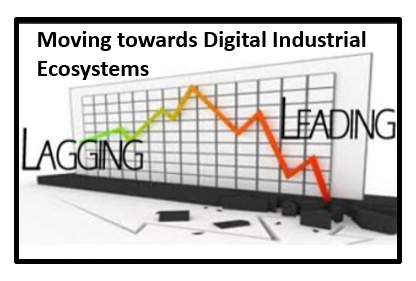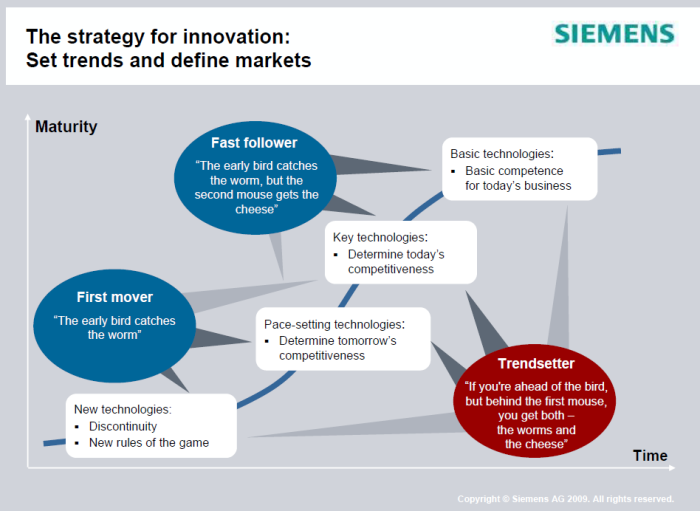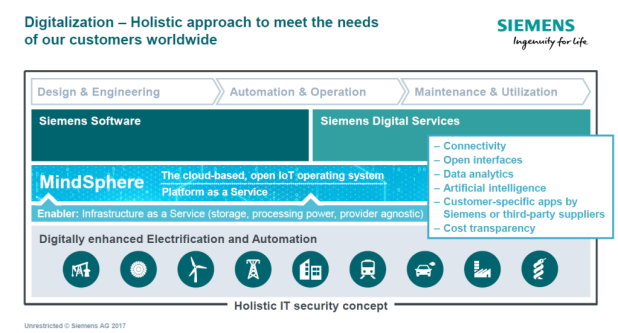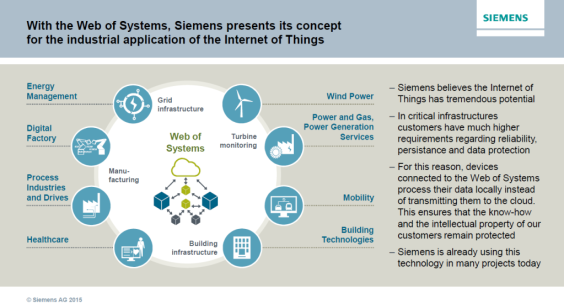 The platform has become essential for much of our social and direct engagements. The likes of Facebook, Amazon, Airbnb and many others are transforming much of our digital engagement for our social and private needs.
The platform has become essential for much of our social and direct engagements. The likes of Facebook, Amazon, Airbnb and many others are transforming much of our digital engagement for our social and private needs.
The lag has been connecting industry up, to the transforming value of ecosystems, to collaborate and build new value on co-developed platforms. There are some leading voices on this, determined to be the orchestrators- exploiting first mover advantage- who are heavily investing in the software and analytics to demonstrate value for not just themselves but drawing in lead customers to offer real, added ‘connected’ value.
I am watching three specifically in the digital industrial space of GE, Bosch and more recently Siemens as they build their ecosystems and offer their platforms as solutions into Industry.
These are among the growing voices on different aspects of innovation, connecting machines, data and new human understanding, of adding the new value or focusing on even more on the preventative aspects where industrial assets need to be constantly performing, as essential. For instance in aviation, power, energy, transport, and healthcare. They are at the forefront of reshaping entire industry dynamics.
As we look to build more through ecosystems and upon collaborative platforms, the more we are changing the dynamics of the industry, moving increasingly away from the traditional manufacturing and service industries, rather structured on each having their own specific design and offering. By opening up and collaborating you have the potential to build more complex solutions, share in risk and costs and deliver far more connected experience that customers value
Part of my shifting my own innovation advisory work was to build a greater understanding of the power of ecosystems and collaboration. This site here https://ecosystems4innovating.wordpress.com/about/ explains why there is this dedicated approach and why I chose to shift part of my business over to developing a “certain” knowledge expertise on ecosystems and platforms last year.
There are so many changes occurring in collaborations it needed a dedicated focus from my perspective. This is a part of the reason this posting site sets about explaining this evolving phenomenon. Business Ecosystems has become a powerful catalyst for innovation in really different, far more radical ways, connecting more through unique ecosystem design and dedicated platform collaborations.
There is a really big shift occurring in innovation as the graph below shows.
When you start thinking about the ten types of innovation and where those can be channeled onto platforms, in highly collaborative ways to cover off multiple types of innovation through platforms and ecosystem collaborations to meet customer needs.

Source: https://www.slideshare.net/lugtu/types-of-innovation-59505692
The race to become a key orchestrator
This visual provides a clear understanding of the position of the orchestrator. They become a prime influencer and provider

One catalyst within Industry has been GE Predix
At present we are at the beginning of a very current, emerging story that might shift GE’s Predix and its recent strategy. GE have dug themselves int a very deep hole, the CEO & Chairman’s position has just changed hands. Recently GE had made investments of $4 billion transforming GE into a digital industrial company, with $1 billion invested in the Predix platform alone. This has been to shift GE and its business model to be a premier digital industrial company and what is critical to this is its Predix Platform, a critical operating system for the Industrial Internet, by connecting industrial equipment, analysing data, and delivering real-time insights, Predix-based apps are unleashing new levels of performance of both GE and non-GE assets through designing and responding to different customer, market, and conditions that the machinery operates in.
The strategic ambition of the past CEO/ Chairman Jeff Immelt was to be “leading in a digital industrial era”. The embracing of the digital industrial transformation will clearly continue under the new leadership but be moderated and become a more focused strategy. It is clear that digital helps deliver customer outcomes and adds value but the new focus will be more on GE’s specific business verticals where the win rate is higher applying Predix-driven applications. So this signals a shift that GE Digital will support GE’s mix of businesses strategy in the near term to drive their revenue but will be less industry shaping in the foreseeable future.
No, GE Predix-for-the-world seems to be the vision of the past, today and GE’s harsh realities confronting it, means more a GE for GE and it’s customers to drive growth and bring in part of the essential cash they are starved of. This move takes some of the momenta out of the digital industrial movement but GE will be focusing exceptionally on asset-heavy industries bringing digital capabilities to the mix but for its own customer base, less open to the world in general.
Adjusting to GE’s ‘reset’ and recognizing other Companies looking to Orchestrate digital platforms
As we absorb the GE “reset mode” across the whole company others will take up the slack. The strongest orchestrator for me has been Bosch in recent times. They serve multiple industries but are heavily focused on bringing Îndustry 4.0 to life and been working on a range of practical solutions.
Bosch- “We are experts for the Internet of Things”
At Bosch Software Innovations they have been active in the Internet of Things for nearly ten years. They have consistently worked away at knowing what it can achieve, which goes far beyond technology, changing businesses, nurturing ecosystems and disrupting industries and then turning those into solutions.
They have been building expertise in a number of areas. They are experts for the Internet of Things with their teams of IoT consultants, software developers, solution architects, project managers, UX designers, business model innovators, and trainers working to bring clients IoT from firstly, helping build the idea and then, building this into a connected strategy, fully through to implementation. They are demonstrating consistently they have the domain-specific, software, and organizational know-how, to support companies digitally transforming themselves.
I am following them with growing interest, as Bosch, the main supplier into the smart era of mobility, cities, and homes and through their subsidiary Bosch Software Innovation, are building a technology stack of IoT that is becoming, for now, a go-to place for the industry. In my review “Bosch Software Innovations will drive your connected device business” you get a real sense of this. In an earlier post “Bosch: A Leading Platform Exemplar of Digitally Connecting” I outline some of the necessary details and put much into context, to understand why Bosch is becoming well positioned to connect ‘everything with everything.’ They are mainly developing this to align with the new manufacturing era which has been dubbed the Industry 4.0 and the need to build multiple ecosystems. Bosch is offering the different analytic applications needed, the device management tools and the platform enablement for rapid deployment and device development that becomes designed to your specifications and needs on their platform, validated mostly by their own implementation and application.
The third company I am equally beginning to really appreciate is Siemens.
They are building a connecting platforms for many similar reasons as GE. To connect the customer and his machines with a greater human understanding. I’ll let two great visuals offered by Siemens to describe their positioning

Also, this offers the way they are exploring digital, building on their software, platform-as-a-service and connecting into their ecosystem in specific digital industrial era ways.

Lastly here, I want to touch on Asia as powerful catalysts leading the change.
Chinese companies are extending platform management and thinking in some very evolutionary ways. My main focus was on one special company so far, Alibaba, which is going more and more head to head with Amazon, if not the premier platform provider, certainly it is up there. In the post, I wrote: “Where the physical and virtual worlds are blurring, thanks to Alibaba” you gain a sense of how transforming this is becoming. They are so focused on building the fundamental infrastructure for modern commerce, presently comprising marketplaces, payment, logistics, cloud computing and big data that it’s ‘collectively’ empowering businesses of all sizes to leverage the internet for their own digital transformation.
In Summary. The world of platforms are transforming where and how we are undertaking business, they allow us to build and connect our brands, products and services alongside others and offer far more complex solutions to draw in the customer and achieve a closer customer experience need.
** this was part of a post I provided and was published on the Hype Innovation Blog recently but updated due to recent developments and changes within the platform domain in recent months